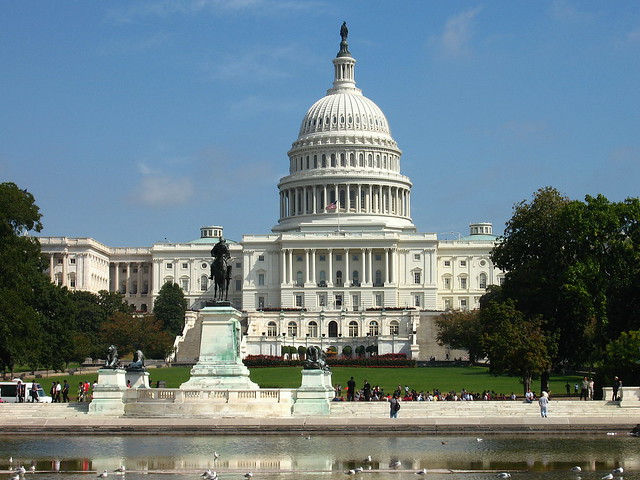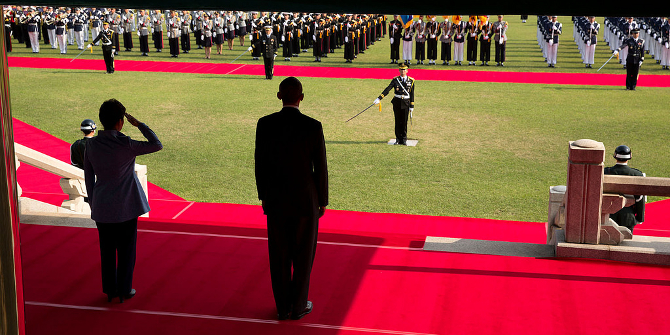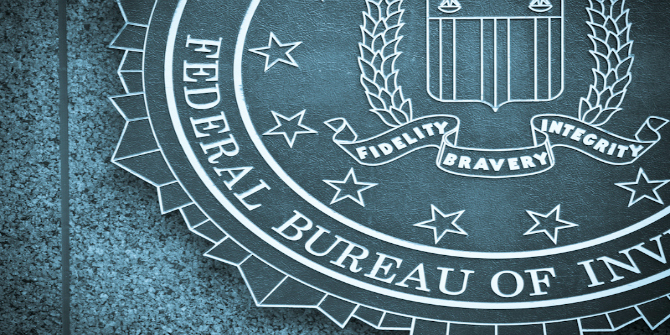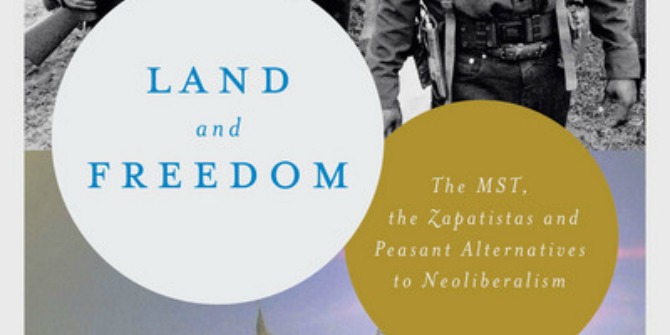 In this book Bryan Mabee presents a broad-ranging assessment of US power in the twenty-first century that covers not just the nature and mechanics of foreign policy but the broad array of economic, military, political, social and ideational forces that shape America’s global position and role, all set in a clear historical context. Anyone looking to understand American power in the twenty-first century would do well to read this comprehensive and nuanced book, writes Richard Armstrong.
In this book Bryan Mabee presents a broad-ranging assessment of US power in the twenty-first century that covers not just the nature and mechanics of foreign policy but the broad array of economic, military, political, social and ideational forces that shape America’s global position and role, all set in a clear historical context. Anyone looking to understand American power in the twenty-first century would do well to read this comprehensive and nuanced book, writes Richard Armstrong.
 Understanding American Power: The Changing World of US Foreign Policy. Bryan Mabee. Palgrave Macmillan. October 2013.
Understanding American Power: The Changing World of US Foreign Policy. Bryan Mabee. Palgrave Macmillan. October 2013.
One of the recurring issues in international relations is the idea of American decline. In the aftermath of Vietnam and Watergate in the seventies, the decline of American power was seen as inevitable. In the late eighties Paul Kennedy’s widely read The Rise and Fall of Great Powers restarted the debate, seeing the rise of Japan as a problem for the US. And in the twenty-first century, Fareed Zakaria’s book The Post-American World, came out just as America was reeling from the financial crisis (President Obama was even seen with a copy). All these books came at a time when American power was seen to be declining, with new rivals on the rise. And yet, in time, the arguments have come to be seen as overly pessimistic.
In Understanding American Power, Bryan Mabee (Senior Lecturer of International Politics at Queen Mary, University of London), makes a compelling case that as in the past, the arguments for American decline are overblown. His new book is a thorough examination of all aspects of American power, looking back in time to the country’s founding, all the way through to the first Obama administration. He persuasively argues that America may be in relative decline, but that’s because it is coming off the “rather high benchmark” of the immediate post-Cold War era.One of the best aspects of Mabee’s book is his focus on America’s domestic politics as a major factor in its power. Too many international relations scholars neglect the domestic aspect of politics, and here Mabee also shows a thorough, insightful view of the morass that is Washington DC in 2013. Indeed, Mabee sees this dysfunction as the biggest threat to future American power.
He argues that traditionally foreign policy was determined by the relationship between the legislative and executive branches, but since the start of the Cold War the White House has gained more control. In recent years though, as Washington has found it increasingly hard to get things done, the ability of Congress to stymie the White House on foreign policy has increased.
Recent developments support this argument. Last week a group of hawkish senators unveiled a new sanctions bill against Iran that is clearly designed to scuttle the current talks in Geneva. And unlike other issues, this can’t be blamed on the Republicans, as prominent Democrats like Robert Menendez and Chuck Schumer are the main proponents. This is clearly an attempt by Congress to undermine the ability of the White House to conduct foreign policy. Other countries would have a hard time talking to the United States if someone from Congress is going to undermine them. The introduction of the sanctions bills during the already fragile negotiations could thwart them completely (which may be the intention).

Agreeing with the work of John Ikenberry, Mabee argues that America’s structural and institutional strength will mean it keeps its dominant position in the world for the foreseeable future. Institutions like the World Bank and International Monetary Fund support the Washington neoliberal consensus. Not only do these organizations follow America’s policy preferences, they give America a structural advantage over other powers.
Mabee also throws water on the idea that the rise of China can only be a threat to American power. First, we should see it as a success that China is joining multilateral institutions and integrating into the international system. Even if it means China has more influence in IGOs, it is better than the alternative. The twentieth century and two world wars showed us what happens when a declining power fails to accommodate a rising one. An increasingly economically dominant China is better than an isolated, resentful China. In the chapter titled “Responses to American Power”, Mabee gives a good overview of the literature about China’s rise, before coming down on the side of those that see conflict between the two superpowers as unlikely. They are too economically interdependent on one another, a crucial factor that seems unlikely to change anytime soon. China is becoming thoroughly embedded in the existing international system thanks to membership in institutions like the WTO.
Mabee suggests that China’s rise isn’t as stable as many of its boosters suggest. Its ascension in recent years has been based on large trade surpluses and GDP growth rates that are impossible to sustain. It also faces problems of increasingly inequality and an aging population. Unfortunately Mabee doesn’t mention domestic politics in the Chinese context. China’s one party system is less stable than America’s centuries-old republican government. The collapse of communism in Eastern Europe and the beginning of the Arab Spring demonstrates how quickly a seemingly entrenched dictatorship can fall.
The book goes back a little too far in its overview of all the aspects of American power. Depending on your knowledge of American history, you may find the repeated references to the Revolutionary era tiresome. But if you’re a bit rusty on Washington, Jackson and Lincoln, the reminder of how America came to be a superpower might be necessary.
Brian Mabee has written an excellent overview of every aspect of American power. He shows the sources of it and its status today. It is also one of the first really good overviews of the foreign policy of President Obama’s first term. Anyone looking to understand American power in the twenty-first century would do well to read this comprehensive and nuanced book.
Please read our comments policy before commenting.
Note: This article gives the views of the authors, and not the position of USApp– American Politics and Policy, nor of the London School of Economics.
Shortened URL for this post: http://bit.ly/1kGIP3q
——————————————–
 Richard Armstrong
Richard Armstrong
Richard Armstrong is a recent M.A. graduate from Seton Hall University’s School of Diplomacy and International Relations in New Jersey. His research interests include international security, U.S. foreign policy and the Middle East. He was previously an Editorial Assistant at World Policy Journal in New York. Read more reviews by Richard.






